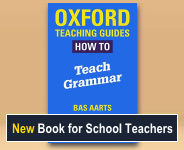National Curriculum KS2 Y5 & Y6: Reading Comprehension
Statutory requirements
Pupils should be taught to:
- maintain positive attitudes to reading and understanding of what they read by:
- continuing to read and discuss an increasingly wide range of fiction, poetry, plays, non-fiction and reference books or textbooks
- reading books that are structured in different ways and reading for a range of purposes
- increasing their familiarity with a wide range of books, including myths, legends and traditional stories, modern fiction, fiction from our literary heritage, and books from other cultures and traditions
- recommending books that they have read to their peers, giving reasons for their choices
- identifying and discussing themes and conventions in and across a wide range of writing
- making comparisons within and across books
- learning a wider range of poetry by heart
- preparing poems and plays to read aloud and to perform, showing understanding through intonation, tone and volume so that the meaning is clear to an audience
- understand what they read by:
- checking that the book makes sense to them, discussing their understanding and exploring the meaning of words in context
- asking questions to improve their understanding
- drawing inferences such as inferring characters’ feelings, thoughts and motives from their actions, and justifying inferences with evidence
- predicting what might happen from details stated and implied
- summarising the main ideas drawn from more than one paragraph, identifying key details that support the main ideas
- identifying how language, structure and presentation contribute to meaning
- discuss and evaluate how authors use language, including figurative language, considering the impact on the reader
- distinguish between statements of fact and opinion
- retrieve, record and present information from non-fiction
- participate in discussions about books that are read to them and those they can read for themselves, building on their own and others’ ideas and challenging views courteously
- explain and discuss their understanding of what they have read, including through formal presentations and debates, maintaining a focus on the topic and using notes where necessary
- provide reasoned justifications for their views.
Notes and guidance (non-statutory)
Even though pupils can now read independently, reading aloud to them should include whole books so that they meet books and authors that they might not choose to read themselves.
The knowledge and skills that pupils need in order to comprehend are very similar at different ages. Pupils should continue to apply what they have already learnt to more complex writing.
Pupils should be taught to recognise themes in what they read, such as loss or heroism. They should have opportunities to compare characters, consider different accounts of the same event and discuss viewpoints (both of authors and of fictional characters), within a text and across more than one text.
They should continue to learn the conventions of different types of writing, such as the use of the first person in writing diaries and autobiographies.
Pupils should be taught the technical and other terms needed for discussing what they hear and read, such as metaphor, simile, analogy, imagery, style and effect.
In using reference books, pupils need to know what information they need to look for before they begin and need to understand the task. They should be shown how to use contents pages and indexes to locate information.
The skills of information retrieval that are taught should be applied, for example, in reading history, geography and science textbooks, and in contexts where pupils are genuinely motivated to find out information, for example, reading information leaflets before a gallery or museum visit or reading a theatre programme or review. Teachers should consider making use of any library services and expertise to support this.
Pupils should have guidance about and feedback on the quality of their explanations and contributions to discussions.
Pupils should be shown how to compare characters, settings, themes and other aspects of what they read.
Welcome!

Englicious is totally free for everyone to use!
But in exchange, we ask that you register for an account on our site.
If you’ve already registered, you can log in straight away.
Since this is your first visit today, you can see this page by clicking the button below.
- Printer-friendly version
- Log in to view or leave comments

